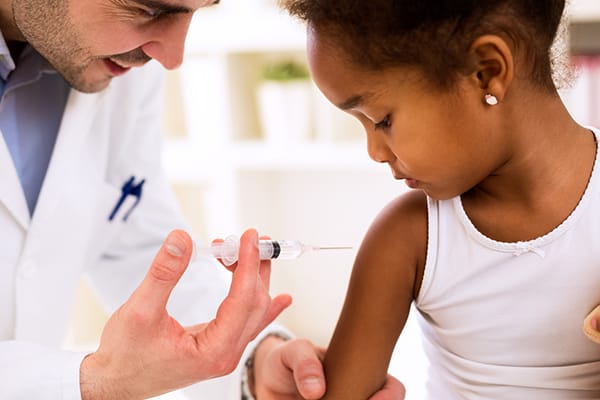Pediatricians with The Iowa Clinic believe it's the single most important thing that can be done as a parent or healthcare provider. Christy Sullivan, M.D., says, “I believe the reason we're even having discussions about whether or not we should vaccinate children is because vaccines have been so effective. The current generation of parents hasn't seen the devastating effects of diseases we can now prevent, or what it's like to lose a child to an illness such as polio.”
Dr. Sullivan acknowledges that, rarely, a certain vaccine may be contraindicated due to a pre-existing medical condition. “But in the absence of medical reasons, some parents still choose not to immunize their kids. As a result, we are starting to see an increase in diseases such as measles and whooping cough. This is a real concern,” she says.
Adam Secory, D.O., adds, “Years of studies have proven that vaccinations are an important investment in the child's health as well as the health of others, especially those who have compromised immune systems. The most common side effects to immunizations are: low-grade fever, tenderness and/or redness at the site of the injection, and fussiness and irritability. Those side effects typically resolve quickly within a day or two.”
In Secory's practice, most parents understand the importance of immunizing their children. “As we focus on preventing illness and disease, immunizations are one of the best things parents can do. If there are any concerns, parents should talk with their healthcare provider before making a decision.”
Exhaustive Research Support Vaccination
Controversy surrounding the safety of childhood immunizations has captured headlines for decades. Perhaps for that reason, the U.S. Department of Health and Human Services' Agency for Healthcare Research and Quality recently commissioned a group of experts from Rand Cop. In Santa Monica, University of California - Los Angeles (UCLA), and Boston Children's Hospital to scour the medical literature for the most scientifically rigorous studies on vaccine safety for children. Their conclusion: “Vaccines are considered one of the greatest public health achievements of the 20th century for their role in eradicating smallpox and controlling polio, measles, rubella, and other infectious diseases in the United States.”
Is your family growing?
To protect your new baby and yourself against whooping cough, get a Tdap vaccine in the third trimester of each pregnancy. Talk to your doctor for more details.
